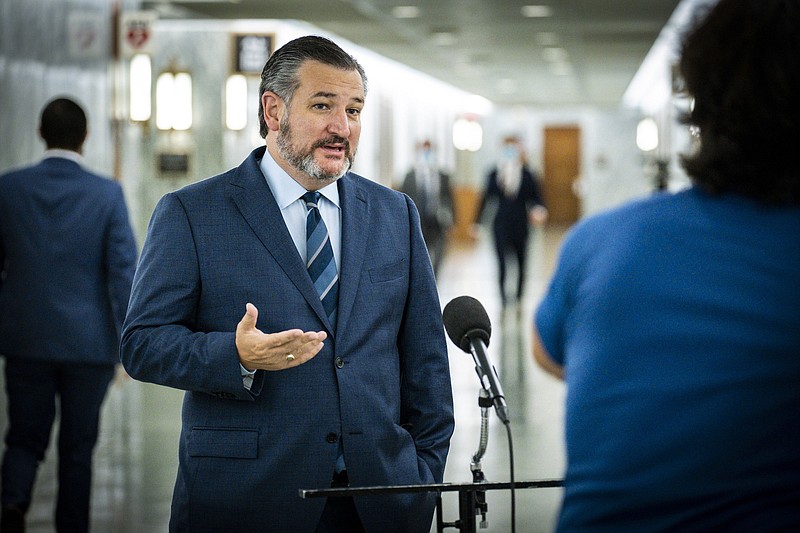Sen. Ted Cruz seems to have a penchant for improbable causes. If he's not trying to audit the presidential election results, he's seeking to amend the Constitution.
He recently joined five other senators in introducing an amendment that would limit terms for members of Congress.
It's a pie-in-the-sky attempt at political reform that has failed before, because what politician is going to knowingly truncate his or her own political career?
A constitutional amendment needs to be passed by two-thirds majorities in both houses of Congress. It also must be ratified by three-quarters of state legislatures, adding to the unlikelihood of it ever becoming reality.
But in the case of Cruz's proposal, it would be worth the effort.
The amendment Cruz introduced would limit senators to two six-year terms and House members to three two-year terms, although no term beginning prior to the amendment's ratification would count.
There's the loophole for people like Cruz. Sneaky.
That caveat aside, 12 and six years should be plenty of time for ambitious and capable policymakers to "make a difference," as they say.
Presidents get a maximum eight years in office, after all, which is more than enough time to upend federal policy.
Opponents of term limits worry about the "brain drain" they would cause, leaving the difficult and often technical work of legislating to a revolving door of inexperienced politicians.
That would further empower seasoned bureaucrats who serve as congressional staff - to the extent that they aren't already running a lot of things in Washington.
Sen. Pat Toomey, a Pennsylvania Republican who co-sponsored the term limits amendment, says that the opposite is true.
He and former Philadelphia Mayor Ed Rendell, a Democrat, argued in the Philadelphia Inquirer last October, that term limits wouldn't deplete wisdom and knowledge, but "infuse Congress with real-world experience, perspectives and sensibilities that are often missing" in Washington.
Anyone who thinks he's wrong must have missed House Speaker Nancy's Pelosi's multimillion-dollar home tour during a COVID-19 lockdown that featured a freezer full of $13-a-pint ice cream. This while many of her constituents were forced out of work.
Pelosi has been in Congress for more than three decades, by the way.
Some critics of term limits claim that they are fundamentally undemocratic because they arbitrarily restrict choices.
That would be a fine argument if voter turnout were consistently high and voters were always educated about the issues.
Even if they were, the Trump era has illustrated what is perhaps the best argument for term limits in these polarized times: limiting political parties.
There are lots of reasons why congressional incumbents seeking reelection win 80%-90% of the time, and most of them have to do with party money and support during re-election campaigns.
It's a lot more difficult to stand up for principles, especially when they are unpopular within your own ranks, when your once allies are threatening to cut off your campaign financing or are readying a primary challenger.
More often than not, the politicians who act independent of party are those who are not seeking re-election.
Just ask Toomey. He has been one of the more outspoken critics of Donald Trump and was one of only five Republican senators to reject an attempt to dismiss the former president's second impeachment trial.
He is retiring in 2022 after his second term is over.
It's slightly ironic that one of the biggest champions of term limits is a man who seems made for a lifetime in politics.
But I won't question his integrity on this one.
Good luck, Sen. Cruz.
The Fort Worth Star-Telegram
